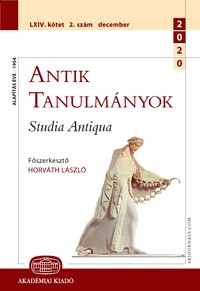Oidipus és Sókratés: Tudás és tudatlanság, tragikus és filozófiai katarzis
Oedipus and Socrates: Knowledge and ignorance, tragic and philosophical catharsis
Author(s): Emese MogyoródiSubject(s): Greek Literature, Ancient Philosphy
Published by: Akadémiai Kiadó
Keywords: Oedipus; Socrates; Delphic oracle; hamartia; hubris; appearance; reality; double ignorance; elenchus; catharsis; tragedy and philosophy
Summary/Abstract: This paper is a comparative study on the iconic Greek heroes, Oedipus and Socrates. In particular, it contrasts their responses to the Delphic oracle and argues that Oedipus’ hamartia, his hubris consists in “double ignorance”, a state of which the Socratic elenchos is meant to purge citizens of Athens. In contrast with Oedipus, Socrates evades tragedy, for he takes the Delphic admonition (“Know thyself!”) to heart. Socratic philosophy is a cathartic procedure meant to preclude tragic catharsis. Sophoclean tragedy and the Socratic-Platonic philosophy respond to the same, perennial human hubris of “double ignorance”, and their lesson is similar. Wavering between appearance and reality, opinion and knowledge – as 5th century Greeks were – our choice is the same today: that between tragic and philosophical catharsis.
Journal: Antik Tanulmányok
- Issue Year: 65/2021
- Issue No: 2
- Page Range: 155-175
- Page Count: 21
- Language: Hungarian

